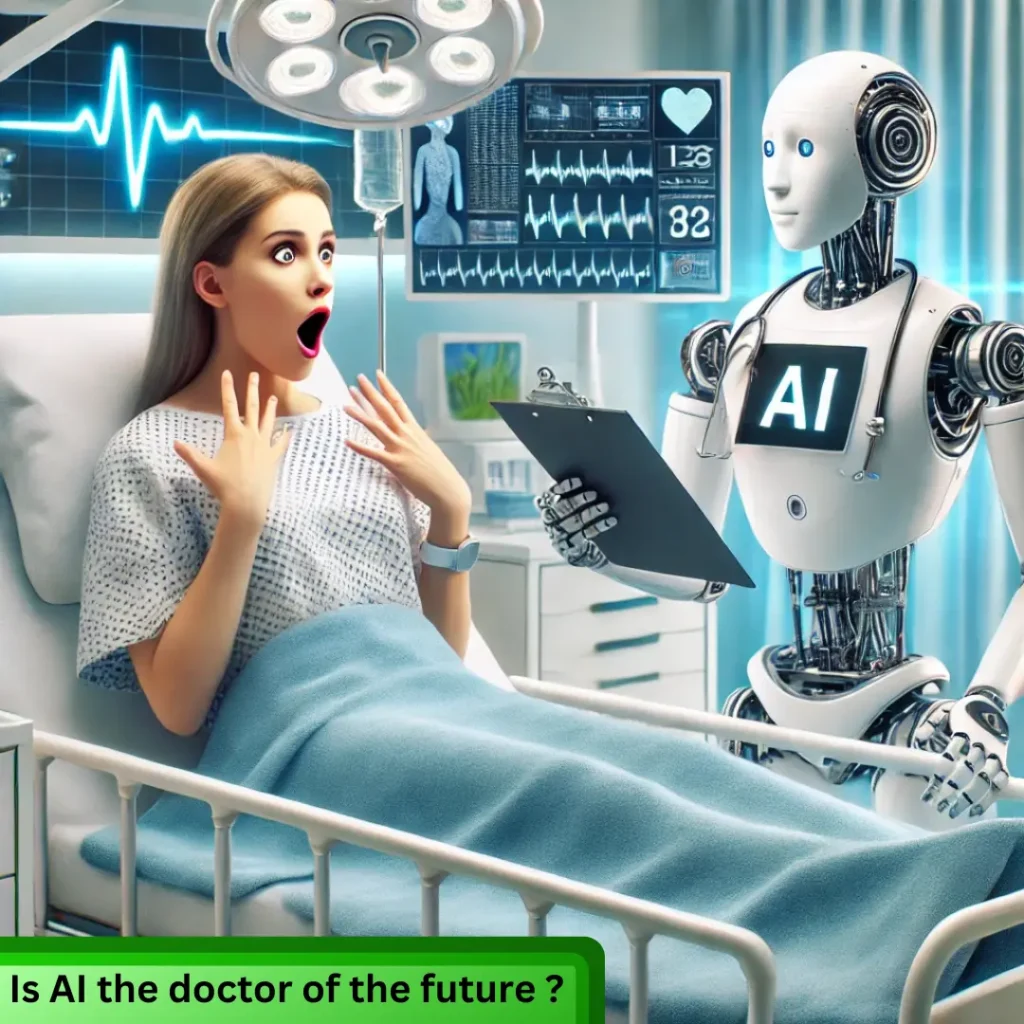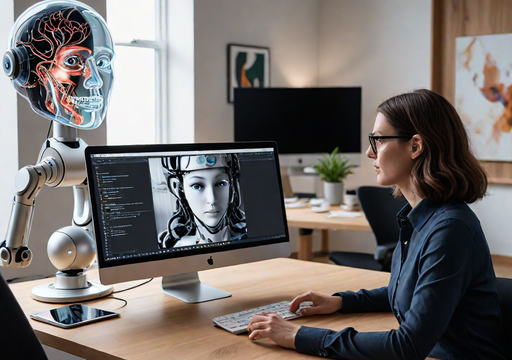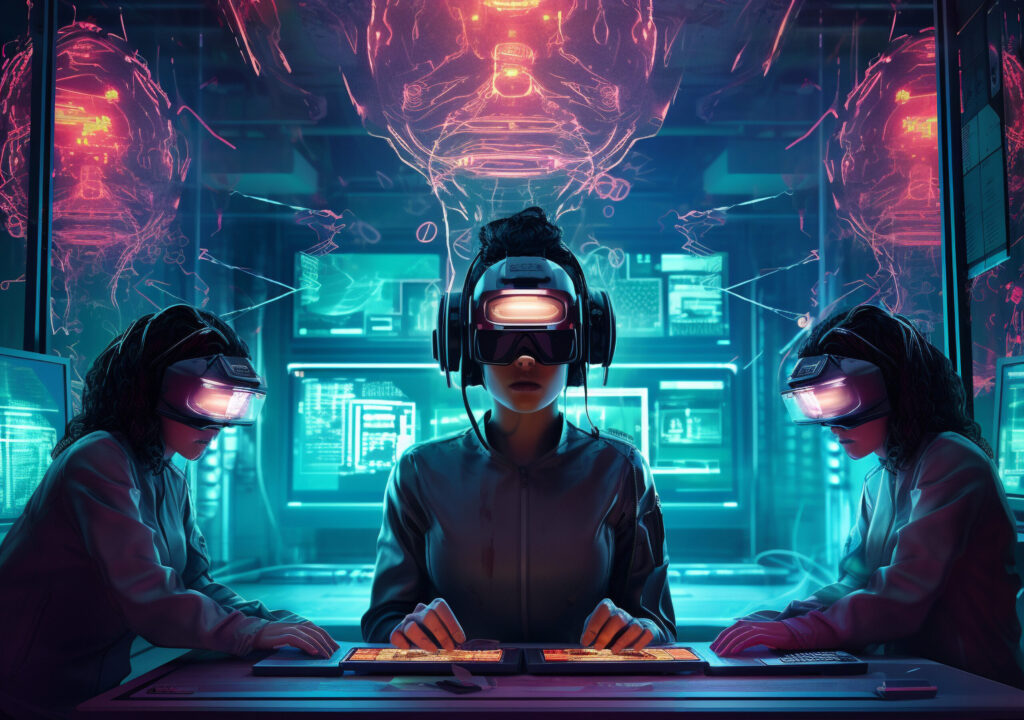Table of Contents
Technology has always played an important role in healthcare, but the rise of Artificial Intelligence (AI) is bringing even bigger changes. From helping doctors diagnose diseases to improving patient care, AI is transforming the healthcare industry for the better. It’s making healthcare services more efficient, accurate, and personalized for each patient.
In this blog, we will take a closer look at how AI is used in healthcare, its benefits, and the challenges.
AI in Healthcare: A New Beginning
AI in healthcare means using computers and smart programs to help doctors look at medical information and make better choices. AI can quickly go through a lot of data and find patterns that people might not see. This makes it really helpful for finding diseases.
Uses of AI in Healthcare:
- Diagnostics and Early Detection:
AI is becoming a powerful tool in diagnosing diseases. Artificial intelligence in medical diagnosis can examine medical images like X-rays, MRIs, and CT scans with high accuracy. In some cases, AI can even spot diseases like cancer earlier than human doctors.
AI tools are also being developed to assess a person’s risk of diseases based on their genetics, lifestyle, and environment, making healthcare more personalized.
- AI in Drug Discovery:
Finding new drugs is a long and expensive process. Artificial intelligence in medical diagnosis helps speed it up by predicting how different chemicals will interact with the body. This allows pharmaceutical companies to find new treatments faster.
During the COVID-19 pandemic, AI in healthcare was used to repurpose existing drugs to treat the virus. AI helped identify promising drugs quickly, shortening the usual timeline for research.
- Virtual Health Assistants:
AI-powered virtual health assistants are now offering patients basic medical advice without the need to visit a hospital. These assistants can answer questions, remind patients to take medications, and help schedule appointments. They also reduce the workload on doctors.
Telemedicine, where doctors consult patients remotely, has become more popular, especially during the pandemic. AI-driven platforms allow doctors to diagnose and treat patients from a distance, making healthcare more accessible and convenient.
- Robotics in Surgery:
AI in healthcare is helping doctors do delicate surgeries. These robots can do small, correct operations, which means patients heal faster.
One example is the Da Vinci Surgical System. It helps doctors perform complicated surgeries through tiny cuts, allowing patients to recover quicker and with better results.
Benefits of AI in Healthcare:
The uses of Artificial intelligence offer many benefits:
- Increased Accuracy
Artificial intelligence has increased accuracy in the healthcare industry. AI can analyze large amounts of data quickly and accurately, leading to better and earlier diagnoses. This improves treatment outcomes and can save lives.
- Personalized Treatments
AI allows for personalized medicine by analyzing a patient’s unique medical history, genetics, and lifestyle. This leads to more effective treatments tailored to individual needs.
- Lower Costs
AI can help reduce healthcare costs by speeding up processes, reducing errors, and improving efficiency. Faster drug discovery and better patient management also save money.
- Improved Patients Experience
Virtual health assistants and telemedicine make healthcare more convenient for patients. They allow people to access medical advice and consultations from home, which is especially helpful for those in remote areas or with mobility issues.
Challenges:
Although AI is very promising in healthcare, there are some challenges:
- Data Privacy and Security
AI needs a lot of patient data to work, which raises concerns about keeping that data safe and private. It’s important to protect sensitive patient information as AI becomes more common in healthcare. This is the main challenge for machine learning in the healthcare industry.
- Lack of Human Interaction
While AI can help doctors, it cannot replace the personal care and understanding that human doctors provide. Some patients might feel that AI-driven care is too impersonal, so it’s important to keep a balance between Artificial intelligence speed and the human touch in the Healthcare Industry.
- Regulatory Challenges
As AI develops quickly, governments and regulators must make sure it is safe and works well in healthcare. Creating clear rules for AI in healthcare is a complicated process that will take time. These are some challenges in the healthcare industry.
Conclusion
AI is making big changes in healthcare. It helps doctors find diseases early, give personalized treatments, and make surgeries better. AI is changing every aspect of daily life to prepared in this era or to stay updated you should read AI related news and blogs
In the future, AI will likely become an even bigger part of healthcare, making care better and easier to get. AI isn’t here to replace doctors but to work with them, making healthcare smarter, faster, and better for patients everywhere.



